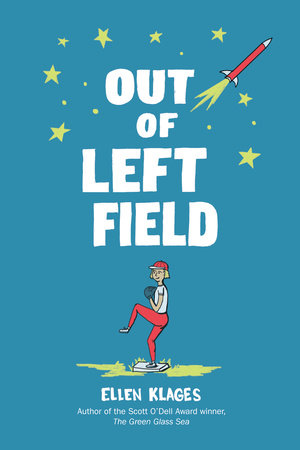Why Historical Fiction Is Important for 21st-Century Kids
by Ellen Klages
In Ellen Klages’s new book, Out of Left Field, 10-year-old Katy Gordon is her neighborhood’s best pitcher and she wants to join the local Little League team. But it’s 1957, and girls are not eligible, period. Katy soon discovers the forgotten history of female ballplayers and is inspired to share their stories while learning to stand up for her own rights. In this essay, author Ellen Klages explains why the hidden parts of history can be the most fascinating and how voices from the past can still teach us a lot about our lives today.
One of the nicest compliments I’ve ever gotten came from a fifth grade boy, who said, “I liked your book, even though it was about history.” He shook his head. “It wasn’t even boring!”
So many kids think that history is just a list of facts and dates to memorize; dry, irrelevant, and unconnected to their lives. But the past isn’t some far-off, mythical place. History is a long, winding river of people’s lives: what they ate, what they wore, how they talked, what they believed, what was happening around them and to them.
Historical fiction tells the stories of ordinary people living in extraordinary times, and extraordinary people living in ordinary times. For me, it’s like a time machine. When I visit the past, I don’t want to go as a tourist, just getting the highlights. I want the backstage tour. I want to look around corners and peer into windows and get to know the people of the neighborhood. I want to be there as events unfold, seeing them through the eyes of a character for whom this time is not “history” — it’s just everyday life.
In skilled hands, the factual history makes the character’s story feel real, and being immersed in that story makes history come alive for the reader, sometimes in surprising ways. Human emotions are timeless; relationships, social status, age- and gender-appropriate roles and issues are fluid and ever-changing.
That’s what fascinates me most: the parts of history that have been swept aside, forgotten, or considered unimportant. The stories of women, people of color, those whose lives were lived in the shadows, hidden or secret. What’s more intriguing than a long-lost secret? It’s buried treasure that makes my curiosity tingle, that makes me want to find out more, keep digging.
Why does it matter? Apart from telling a ripping good story, I think these voices from the past can teach us a lot about our own times, our own lives.
Good historical fiction opens a dialogue between the past and the present. The attitudes of the past, from the more enlightened perspective of a present-day reader, may seem wrong-headed, even ugly; many social norms were not questioned, not then. There are no warning labels on history. People smoked and didn’t know it was bad for them. Women and minorities were treated like second-class citizens and denied fundamental rights. Unfortunately, that same racism, sexism, abuse of power are all part of today’s headlines.
I think it’s important for kids to be aware that the past was often less than savory, that they learn about what actually happened, not what some would like to pretend it was like. And it’s a fabulous opportunity for parents, grandparents, and educators to be open about their own experiences, to discuss how things have changed in the last 30 or 40 or 50 years — and how they haven’t.
An inquisitive kid may have more questions than adults have answers, but that can be a very good thing. When kids want to find out more, following their own curiosity, they develop amazing research skills that will be useful for the rest of their lives. And the more questions readers ask about the past, the more they’re prepared to be citizens of the future — a future they will create, where they can make a difference, and maybe change “the way things have always been.”
I said that good historical fiction is like a time machine. And there is one, unbreakable law of time-travel: You cannot change the past. But when you close the cover of a book like Out of Left Field, you may discover that the past has changed you.

